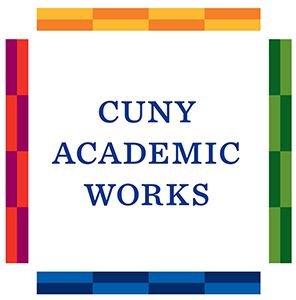
Welcome to the New Year! As we move into the Spring 2022 semester, it’s time to reflect back on 2021.
Last year was a great year for CUNY Academic Works; over the course of the year, 526 different works were downloaded from the QC Publications and Research series, for a total of 37,769 downloads. These publications span all disciplines – education, biology, English, history, and many more. New works were frequently downloaded, of course, but many works of research going back to the beginning of Academic Works and even long before are still relevant, judging by the number of them that people accessed this year.
Since I opened this post with a little data, I’d like to use this month’s edition of QC Research Highlights to highlight some works that are doing interesting things with data! Each of these works is interested in finding and evaluating new ways of measuring and using data, whether that means getting new results from old data or developing modified scales for understanding the data. This type of research is exciting because it creates new possibilities for future research.
Let’s start with an article from three authors from Queens College’s School of Earth and Environmental Science: Christine Ramadhin, Chuixiang Yi, and George Hendrey. In their article, “Temperature Variance Portends and Indicates the Extent of Abrupt Climate Shifts,” the authors used a paleotemperature dataset documenting the changes in temperature over time. While this dataset has been used in many other studies, this article focuses on the variance in temperature, finding a correlation between high variance and quick temperature increase. Their data suggests that changes in temperature variance can predict abrupt climate changes.
Similarly, our next article is interested in finding new ways to query data produced elsewhere. Using data from the financial website Seeking Alpha, Cuiyuan Wang (formerly of the QC and Graduate Center Economics departments, currently at Trinity College), Tao Wang (Economics), and Changhe Yuan (Computer Science) ask: “Does Applying Deep Learning in Financial Sentiment Analysis Lead to Better Classification Performance?.” Seeking Alpha is a crowdsourced website where experts of various types express opinions on stocks. The authors used a deep learning model known as LSTM (Long Short-Term Memory) to measure the accuracy of these opinions; the purpose of this experiment was to see whether this model was better than other tools which make similar assessments. They found that according to most metrics, LSTM outperformed more traditional measures.
My colleague Joan Xu (Library) studied information searching and user engagement in visual information searching: “Validating and Developing the User Engagement Scale in Web-based Visual Information Searching.” She considers the four-factor User Engagement Study model, a modified version of an earlier six-factor model, to measure users’ psychological involvement in visual searching, including in Google Image Searching and YouTube. She proposes a scale based on reward, focused attention, aesthetic appeal, and sense discovery. For visual searching specifically, sense discovery was shown to be important for cognitive-affective experience.
Thank you to all the authors whose works are listed here!
This is one of a series of blog posts featuring faculty publications in CUNY Academic Works. Academic Works is a service of the CUNY Libraries dedicated to collecting and providing access to the research, scholarship, and creative and pedagogical work of the City University of New York. In service to CUNY’s mission as a public university, content in Academic Works is freely available to all.
If you would like to share your research in Academic Works, please see this guide to Academic Works, or contact Nancy.Foasberg@qc.cuny.edu.
If you would like to share your research in Academic Works, please see this guide to Academic Works, or contact Nancy.Foasberg@qc.cuny.edu.
